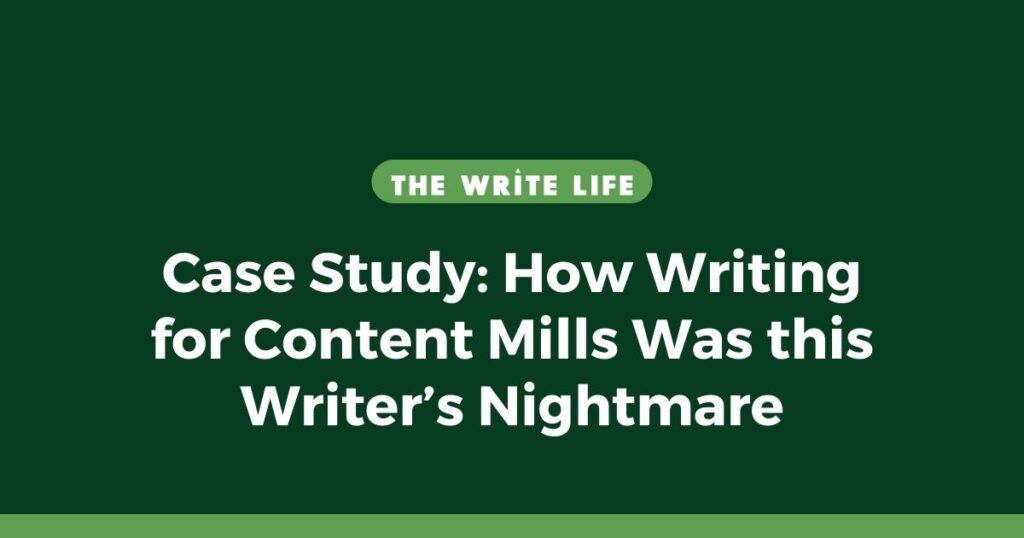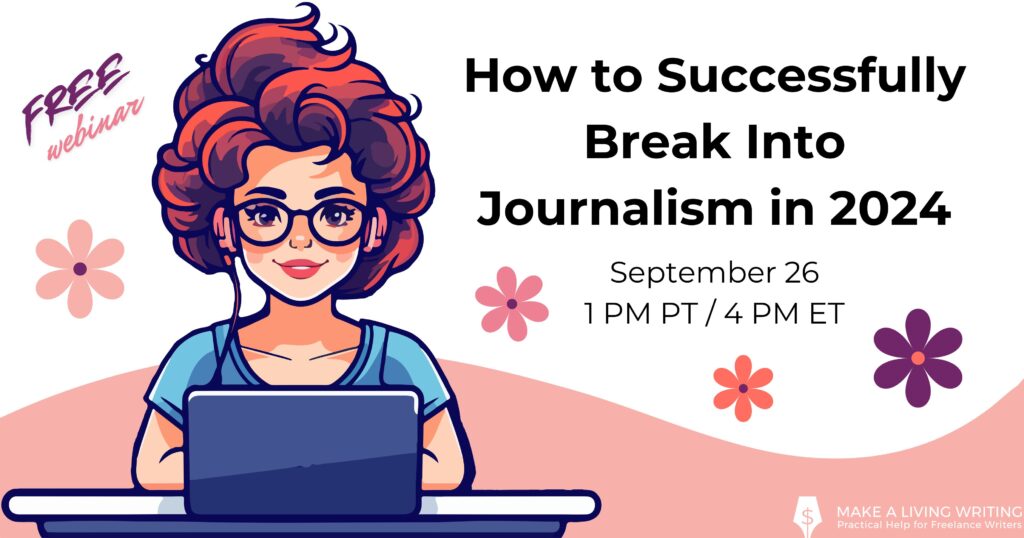Are you currently writing for content mills or considering writing for a content mill? Before you join, read this first-hand case study from author Adryan Corcione to assist you to resolve.
Key Points on Writing for Content Factories
A number of years ago, I used to be planning on taking small steps to transition into full-time freelance writing. On the time, I had a monotonous day job in real estate content marketing and freelance writing on weekdays and weekends.
My Seek for Anchor Clients
My fundamental strategy was to accumulate a handful of key clients, or “corporations or individuals with whom you’ve got an ongoing relationship and a gradual flow of projects and revenue,” in line with Funds for writers—to assist cover basic living costs: food, rent, utilities, etc.
Freelance writers also use the terms “sponsored gigs” and “side gigs” to seek advice from sponsored clients.
It was this strategy that got me began writing for the content factory — and I failed miserably at it.
I won’t say which site I used to be talking about, nevertheless it’s a bit just like the Huffington Post (in that it doesn’t pay its writers) and is aimed primarily at students.
Regardless that it was a publication and never Additional workI still call it a content factory due to embarrassingly low pay that may be very common once you write for a content factory..

My Nightmare About Writing Stories for Content Factories
I got here across an ad in a author’s Facebook group regarding the potential of using an editing service.
After sending my CV and a couple of writing samples, I quickly received a willing response to debate my skilled experience over the phone. I used to be excited, not only due to opportunity to secure a key account, but Eventually I’m gaining experience in editing texts.
Plus, all of this was happening in an elite group of writers, so it gave the look of an incredible opportunity to hitch the project.
Once I asked about pay during my first phone interview, the interviewer said that editors make $1 for each story they submit. To get a “fair” $10 an hour, we were expected to write down not less than 10 stories an hour. Shifts typically lasted two to 4 hours, and we had several every week.
I had a terrible premonition: $1 per article? That is crazy, right?
But I used to be in a decent spot. I desperately wanted to depart my office job on the time, and I needed gigs I could depend on for a base income—even when that meant writing for content mills. Ultimately, I used to be in search of experience I could take with me when applying for higher-paying gigs.
Besides, I had already spoken to this person before, especially since he was obsessed with my work and I, as a newbie, had no idea what the common rates for proofreading were.
As a substitute of listening to my intuition, I continued the recruiting process.
I attended an hour-long tutorial, but I wasn’t paid for my time. Along with the low pay, the system was obscure: numerous paperwork to fill out, web sites to review, and articles to read. Despite the anxiety I started to feel, I went with the flow and tested it out.
My first shift soon arrived. My fears were confirmed once I struggled to complete editing three articles in an hour. I became incredibly frustrated with myself.
Why did I let myself get this far and screw it up? In hindsight, I see that my anger was directed at me, not at the corporate that thought I could copy and edit 10 articles (exactly) in an hour.
Forget Upwork and Fiverr, I believed, I’m already a failure.
One other author has experience writing for content factories
Not everyone has the identical experience with content factories as I even have.
In reality, some writers have successfully launched their careers using them and imagine they may be start line for many who need to develop into freelance writers.
For instance, a full-time freelance author Ana Gotter describes his experience with Upwork as “[having]consistently more bad experiences than good,” but he highly recommends the same site called Clear VoiceShe also heard about positive experiences with Ebyline from other independent authors.
“It helped me land my first ghostwriting gig and even get me into Upwork’s Top Talent and Pro programs, but I left the location after they raised the rates freelancers must pay. It is also common for writers to do work for little or no in exchange for excellent reviews early on, but that may backfire on them.”
Should you’re just starting out as a contract author, in search of work through a content factory may not be a foul idea, but there are a couple of major caveats.
First, it’s essential to select the sites you spend your time on correctly.
Gotter explains that Clearvoice and Ebyline have higher success rates in comparison with Upwork.
Don’t spend hours constructing a deep referral profile and landing projects if the rates are way too low in your revenue goals. Especially when you’re attempting to construct relationships with anchor clients, don’t dismiss content mills until you’ve tried one, but know when to walk away when the rates are low.
Secondly, it’s essential to make sure that you are not putting all of your eggs within the content basket. Mills should simply be a method to an end.
It is best to still work on constructing your individual core client base outside of the mills — clients who pay more don’t expect you to publish dozens of articles daily, and so they’ll assist you to earn the cash you truly deserve.
Writing for content mills may be approach to start your freelance profession, especially when you’re in search of entry-level assignments.
Nevertheless it’s easy to overwork yourself in an environment that typically underpays its employees. Too often, writers get stuck in a penny-pinching, mill-level writing rut and never take the time to construct their very own client base of clients who pay high-quality rates.
Unnecessary to say, freelancers unanimously point to certainly one of two approaches: run away or watch out when considering working for a content factory.

Should you’re wondering what opportunities await indie authors in 2024 (hint: there are tons!), you should definitely register for a free webinar on September 26, 2024 called How to Succeed in Journalism in 2024! You’ll study the different sorts of journalism and what you could be best fitted to, in addition to a very powerful skills that successful journalists need and where this will lead.
That is an updated version of a story that was previously published. We update our posts as often as possible to make sure they’re useful to our readers.